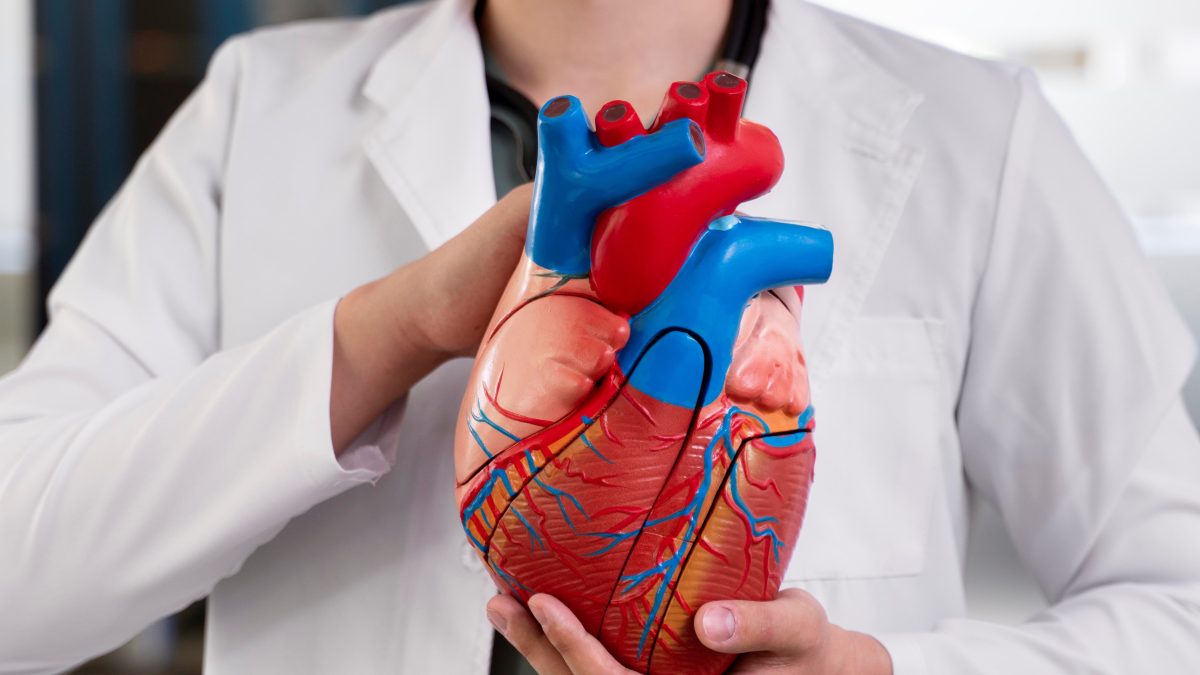- Have any questions?
- (+91) 02792 230240
- info@smcgh.edu.in

World Lung Day: Insights into lung health & well-being
September 9, 2024Cardiovascular disease (CVD) is a general term for conditions affecting the heart or blood vessels. It is the leading cause of death and disability in the world. With conditions directly attacking the heart and blood vessels resulting in a stroke, heart failure and a heart attack, kills more than 20.5 million every year across the globe. However, 80% of CVDs are largely preventable for most people.
This World Heart Day, let’s not crush our hopes. Embracing certain lifestyle habits early on can help you live longer with a healthier heart. Before we take a look at the preventive measures, let us find out the common CVDs, their symptoms, and indicators.

Some common cardiovascular diseases in India:
- Coronary heart disease: Coronary heart disease and stroke majorly account for over 80% of cardiovascular disease deaths in India, making it a public health concern. Some of its common symptoms are:
- Extreme pressure, pain, or tightness in the chest.
- Shortness of breath.
- Excessive sweating accompanied by chest discomfort.
- Dizziness: A sign of reduced blood flow to the brain.
- Fatigue: Unusual tiredness even with minimal physical exertion
Indicators:
- Reduced blood flow to the heart muscle.
- Heart attack.
- Elevated blood pressure.
- High cholesterol levels.
- Hypertensive heart disease: It refers to heart conditions caused by high blood pressure. According to PubMed Central, it increases the risk of death and cardiovascular diseases, heart failure and heart attacks. Upon estimation, it is presumed that 1 in 8 people might be suffering from hypertension. While it is often asymptomatic, especially in the early stages, some of its common symptoms include:
- Severe headaches.
- Shortness of breath.
- Chest pain.
- Fatigue or confusion.
- Irregular heartbeat.
- Pounding in your chest, neck, or ears.
- Vision problems.
Indicators:
- Elevated blood pressure: Consistently high BP readings, especially if only
elevated at night. - Electrocardiogram (ECG) Changes: Indicates strain on the heart.
- Chest X-rays: May show an enlarged heart.
- Rheumatic heart disease: A condition where the heart valves get impaired due to rheumatic fever. The National Medical Journal of India states that India is the RHD capital of the world with almost 40% of all people living with the disease.
It also causes cardiovascular morbidity and mortality among children, adolescents and young adults. It is essential to treat rheumatic fever before it starts to damage the heart and lead to heart failure. Some of its common symptoms include:
- Chest pain.
- Fatigue.
- Heart murmur, defined as a blowing, whooshing, or rasping sound heard during a heartbeat.
- Shortness of breath with exercise , at rest or when lying flat.
- Swelling in your stomach, hands or feet.
- Coughing up blood.
Indicators:
- Arrhythmia (abnormal heart rhythms, like atrial fibrillation).
- Heart failure.
- Infective endocarditis, an infection in your heart valves.
- Pulmonary hypertension.
Road to prevention
According to the World Heart Federation, 80% of premature deaths from cardiovascular diseases are preventable. And for that, adopting a healthy lifestyle from an early age is of utmost importance. Even if you are feeling well, always keep the following things in mind:
- Monitor cholesterol levels: Some of the first steps to a healthy heart are to have a healthy blood pressure level and advisable cholesterol ranges. ‘Good and Bad’ cholesterol should be checked and recorded.
- Dietary changes: Nutritious foods that are heart-healthy and help boost and enhance your overall health. Incorporate leafy greens, whole grains, walnuts, olive oil and green tea into your diet.

- Stay active: Doctors recommend 30–60 minutes of exercise daily. Brisk walking, running, cycling, strength training and stretching are great options. A good workout routine boosts cardiovascular health, strengthens muscles and enhances mental well-being.
- No smoking: Quitting smoking improves heart health by preventing nicotine from constricting blood vessels, which can lead to atherosclerosis and heart disease.
- Stress management: Chronic stress, anxiety, and depression can increase the risk of cardiovascular issues by affecting blood pressure, heart rate, and inflammation. It’s important to manage stress through activities like meditation, regular exercise, deep breathing, and seeking social support. Additionally, prioritising self-care, practising mindfulness, and connecting with loved ones can
also contribute to better mental health and a healthier heart. - Good sleep: Quality sleep helps regulate blood pressure, reduce stress, and support overall cardiovascular function. Poor sleep or lack of sleep can increase the risk of heart disease by leading to conditions like high blood pressure,obesity, and diabetes. Prioritise 7-9 hours of restful sleep each night.

- Manage a healthy weight: Excess weight can lead to conditions like high blood pressure, high cholesterol, and diabetes, all of which increase the risk of cardiovascular disease. By staying within a healthy weight range, you reduce the strain on your heart and lower your risk of developing these associated conditions.
Conclusion
Considering the heart’s constant workload, it’s remarkable that it functions continuously and supplies oxygen and nutrients to every part of your body. However, poor diet, lack of exercise, smoking, or infections, can negatively impact heart health.
World Heart Day reminds us that even the smallest changes can make a significant difference in our cardiovascular health. Some lifestyle changes can help curb harmful conditions such as high blood pressure or high cholesterol, before they can cause any harm. Regular check-ups are also essential, as they help detect potential issues early on, ensuring that your heart stays strong and healthy. Remember, every step you take towards a healthier lifestyle is a step towards a healthier heart.





